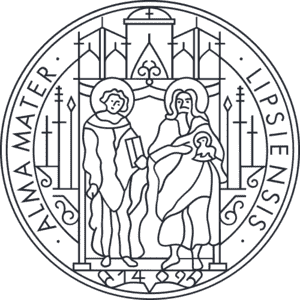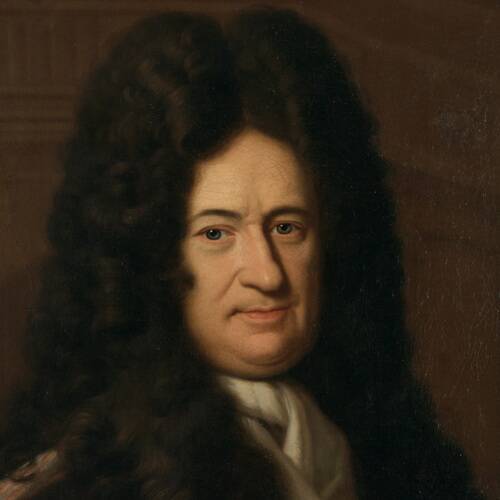University of Leipzig: Statistics
Updated:


| Position | Category |
|---|---|
| #203 of 14,131 | In the World |
| #66 of 2,785 | In Europe |
| #16 of 369 | In Germany |
| #1 of 19 | In Saxony |
| #1 of 6 | In Leipzig |
| #40 of 2,491 | For Obstetrics and Gynecology (OB-GYN) |
| Top50% | For 192 other topics |
Quick Review
- Acceptance rate
- 10%
- Enrollment
- 31,088
- Type
- Non-profit
- Funding
- Public-private
partnership - Highest Degree
- Doctorate
- Website
- www.uni-leipzig.de
- Languages
- German;English
Acceptance rate & Admissions
| Acceptance Rate | 10% |
|---|---|
| Admissions Requirements | Secondary school certificate (Reifezeugnis) or equivalent |
| Academic Calendar | October to September (October - March; April-September) |
| Enrollment | 31,088 |
We've calculated the 10% acceptance rate for University of Leipzig based on the ratio of admissions to applications and other circumstantial enrollment data. Treat this information as a rough guide and not as a definitive measure of your chances of admission. Different programs may have significantly varying admissions rates.
Research profile
University of Leipzig is a world-class research university with 87,079 scientific papers published and 2,146,680 citations received. The research profile covers a range of fields, including Biology, Medicine, Chemistry, Liberal Arts & Social Sciences, Physics, Engineering, Computer Science, Biochemistry, Genetics, and Environmental Science.
University of Leipzig majors
by publication & citation count
Annual publication & citation counts
| Year | Publications | Citations |
|---|---|---|
| 1992 | 506 | 3509 |
| 1993 | 483 | 3524 |
| 1994 | 587 | 4034 |
| 1995 | 625 | 4243 |
| 1996 | 743 | 4996 |
| 1997 | 1068 | 5499 |
| 1998 | 1111 | 6633 |
| 1999 | 1220 | 8288 |
| 2000 | 1280 | 10120 |
| 2001 | 1332 | 11729 |
| 2002 | 1486 | 14141 |
| 2003 | 1577 | 18232 |
| 2004 | 1847 | 21555 |
| 2005 | 1990 | 27553 |
| 2006 | 1994 | 31593 |
| 2007 | 2025 | 37018 |
| 2008 | 2085 | 42524 |
| 2009 | 2318 | 50778 |
| 2010 | 2403 | 55938 |
| 2011 | 2372 | 62838 |
| 2012 | 2628 | 70578 |
| 2013 | 2793 | 77899 |
| 2014 | 2835 | 84963 |
| 2015 | 2896 | 89615 |
| 2016 | 2907 | 93042 |
| 2017 | 3246 | 101690 |
| 2018 | 3059 | 109549 |
| 2019 | 3520 | 125272 |
| 2020 | 3904 | 153898 |
| 2021 | 4616 | 177071 |
| 2022 | 4326 | 176673 |
| 2023 | 4499 | 186948 |
| 2024 | 3349 | 185394 |
Tuition
The tuition table for University of Leipzig gives an overview of costs but prices are approximate and subject to change and don't include accommodation, textbooks, or living expenses. The costs of programs might differ significantly for local and international students. The only source of truth for current numbers is the university's official website.
| Program | Tuition Cost (per semester) |
|---|---|
| Bachelor's Degree | Free for EU/EEA students, €1,500 for non-EU/EEA students |
| Master's Degree | Free for EU/EEA students, €1,500 for non-EU/EEA students |
| Doctoral Degree | Free for all students |
Currency: Euro (€)
Programs and Degrees
The table below displays academic fields with programs and courses that lead to Bachelor's, Master's, and Doctorate degrees offered by University of Leipzig.
Note that the table provides a general overview and might not cover all the specific majors available at the university. Always visit the university's website for the most up-to-date information on the programs offered.
| Programs | Bachelor | Master | Doctoral |
|---|---|---|---|
| Art & Design | Yes | Yes | Yes |
| Biology | Yes | Yes | Yes |
| Business | Yes | Yes | Yes |
| Chemistry | Yes | Yes | Yes |
| Computer Science | Yes | Yes | Yes |
| Economics | Yes | Yes | Yes |
| Engineering | Yes | Yes | Yes |
| Environmental Science | Yes | Yes | Yes |
| Liberal Arts & Social Sciences | Yes | Yes | Yes |
| Mathematics | Yes | Yes | Yes |
| Medicine | Yes | Yes | Yes |
| Physics | Yes | Yes | Yes |
| Psychology | Yes | Yes | Yes |
| Bachelor's Degree | African Languages, African Studies, American Studies, Ancient Civilizations, Arabic, Archaeology, Art Education, Art History, Arts and Humanities, Asian Studies, Biochemistry, Biology, Business Computing, Business Education, Chemistry, Chinese, Communication Studies, Computer Science, Cultural Studies, Czech, East Asian Studies, Eastern European Studies, Economics, English, English Studies, Ethnology, European Studies, Geography, German, Germanic Studies, Greek (Classical), Hindi, History, History of Religion, Islamic Studies, Japanese, Latin, Linguistics, Literature, Media Studies, Meteorology, Mongolian, Music, Oriental Studies, Philosophy, Physics, Political Sciences, Psychology, Religious Studies, Romance Languages, Slavic Languages, South Asian Studies, Sports, Sports Management, Theatre, Tibetan, Translation and Interpretation |
|---|---|
| Kirchliche Abschlussprüfung | Protestant Theology |
| Diplom (Univ) | Business and Commerce, Mathematics, Protestant Theology |
| Master | African Studies, American Studies, Ancient Civilizations, Arabic, Archaeology, Art Education, Art History, Arts and Humanities, Asian Studies, Bilingual and Bicultural Education, Biochemistry, Biological and Life Sciences, Biology, Biotechnology, Business Administration, Business Computing, Business Education, Chemistry, Classical Languages, Communication Studies, Computer Science, Cultural Studies, Data Processing, Earth Sciences, East Asian Studies, Eastern European Studies, Ecology, Economics, English, English Studies, Environmental Studies, Ethnology, European Studies, European Union Law, Geography, Geography (Human), German, Germanic Studies, Hindi, History, History of Religion, Insurance, International Economics, International Studies, Islamic Studies, Japanese, Journalism, Law, Linguistics, Literature, Logic, Management, Mass Communication, Mathematics, Media Studies, Medicine, Meteorology, Mineralogy, Mongolian, Musicology, Oriental Studies, Philosophy, Physics, Political Sciences, Preschool Education, Private Law, Psychology, Public Administration, Rehabilitation and Therapy, Religion, Romanian, Slavic Languages, Small Business, Sociology, South Asian Studies, Sports, Sports Management, Theatre, Theology, Tibetan, Translation and Interpretation, Writing |
| PhD | Arts and Humanities, Biological and Life Sciences, Chemistry, Earth Sciences, Economics, Education, Educational Sciences, History, Law, Mathematics and Computer Science, Medicine, Mineralogy, Oriental Studies, Pharmacy, Philology, Philosophy, Physics, Psychology, Social Sciences, Sports, Theology, Veterinary Science |
University of Leipzig alumni
-
Friedrich Nietzsche

- Enrolled in the University of Leipzig
- Studied in 1865-1879
- Occupations
- philosophermusic criticpoetcomposerpedagogue
- Biography
-
Friedrich Wilhelm Nietzsche was a German classical scholar, philosopher, and critic of culture, who became one of the most influential of all modern thinkers. He began his career as a classical philologist before turning to philosophy. In 1869 at the age of 24, he became the youngest person to hold the Chair of Classical Philology at the University of Basel in Switzerland. In 1879 he resigned due to health problems that plagued him most of his life, after which he completed much of his core writing in the following decade. In 1889 at age 44, he suffered a collapse and afterward a complete loss of his mental faculties, with paralysis and probably vascular dementia. He lived his remaining years in the care of his mother until her death in 1897, and then with his sister Elisabeth Förster-Nietzsche. Nietzsche died in 1900, after experiencing pneumonia and multiple strokes.
-
Angela Merkel

- Enrolled in the University of Leipzig
- 1973-1978 graduated with Diplom in physics
- Occupations
- physicistpolitician
- Biography
-
Angela Dorothea Merkel is a German retired politician who served as Chancellor of Germany from 2005 to 2021. She is the only woman to have held the office. Merkel previously served as Leader of the Opposition from 2002 to 2005 and as Leader of the Christian Democratic Union from 2000 to 2018. During her chancellorship, Merkel was frequently referred to as the de facto leader of the European Union (EU) and the most powerful woman in the world.
-
Johann Wolfgang von Goethe

- Enrolled in the University of Leipzig
- 1765-1768 studied jurisprudence
- Occupations
- lawyerpoetplaywrightstatespersonmusic critic
- Biography
-
Johann Wolfgang von Goethe was a German polymath, who is widely regarded as the greatest and most influential writer in the German language. His work has had a profound and wide-ranging influence on Western literary, political, and philosophical thought from the late 18th century to the present day. A poet, playwright, novelist, scientist, statesman, theatre director, and critic, his works include plays, poetry and aesthetic criticism, as well as treatises on botany, anatomy, and color.
-
Richard Wagner

- Occupations
- writerautobiographercomposerpianistpoet
- Biography
-
Wilhelm Richard Wagner was a German composer, theatre director, essayist, and conductor who is chiefly known for his operas (or, as some of his mature works were later known, "music dramas"). Unlike most opera composers, Wagner wrote both the libretto and the music for each of his stage works. Initially establishing his reputation as a composer of works in the romantic vein of Carl Maria von Weber and Giacomo Meyerbeer, Wagner revolutionised opera through his concept of the Gesamtkunstwerk ("total work of art"), whereby he sought to synthesise the poetic, visual, musical and dramatic arts, with music subsidiary to drama. The drama was to be presented as a continuously sung narrative, without conventional operatic structures like arias and recitatives. He described this vision in a series of essays published between 1849 and 1852. Wagner realised these ideas most fully in the first half of the 16-hour, four-opera cycle Der Ring des Nibelungen (The Ring of the Nibelung, also known simply as The Ring).





University of Leipzig faculties and divisions
| Faculty : Biology, Pharmacy and Psychology | Biochemistry, Biological and Life Sciences, Biology, Pharmacology, Pharmacy, Psychology |
|---|---|
| Faculty : Chemistry and Mineralogy | Chemistry, Crystallography, Mineralogy |
| Faculty : Economics and Management (including Civil Engineering) | Accountancy, Building Technologies, Business Administration, Business and Commerce, Business Computing, Civil Engineering, Construction Engineering, Economics, Finance, Industrial Engineering, Management, Real Estate, Statistics |
| Faculty : Education | Adult Education, Curriculum, Education, Education of the Handicapped, Educational Psychology, Educational Sciences, Primary Education, Secondary Education, Special Education |
| Faculty : History, Art and Oriental Studies | African Studies, Arabic, Archaeology, Art History, Asian Studies, Cultural Studies, Ethnology, Fine Arts, History, Music, Musicology, Oriental Studies, Religious Studies, Theatre |
| Faculty : Law | Law |
| Faculty : Mathematics and Computer Science | Computer Science, Mathematics |
| Faculty : Medicine | Biochemistry, Epidemiology, Forensic Medicine and Dentistry, Genetics, Medicine, Occupational Health, Physiology, Virology |
| Faculty : Philology | American Studies, Classical Languages, Comparative Literature, English Studies, German, Germanic Studies, Linguistics, Modern Languages, Philology, Romance Languages, Slavic Languages, Translation and Interpretation |
| Faculty : Physics and Earth Sciences | Earth Sciences, Geography, Geology, Geophysics, Meteorology, Paleontology, Physics |
| Faculty : Social Sciences and Philosophy | Ethics, Journalism, Logic, Media Studies, Philosophy, Political Sciences, Social Sciences, Sociology |
| Faculty : Sports Science | Physical Education, Rehabilitation and Therapy, Sports |
| Faculty : Theology | Religious Education, Theology |
| Faculty : Veterinary Science | Veterinary Science |
General information
| Alternative names | Universität Leipzig |
|---|---|
| Founded | 1409 |
| Motto | Aus Tradition Grenzen überschreiten |
Location and contacts
| Address | P.O. Box 100920 Ritterstraße 26 Leipzig, Saxony, 04009 Germany |
|---|---|
| City population | 620,000 |
